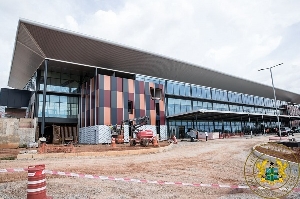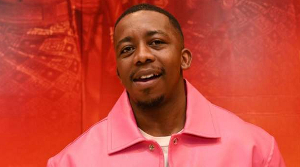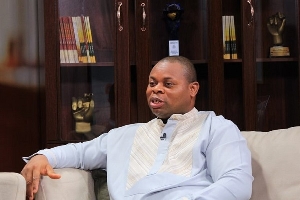- Home - News
- TWI News | TV
- Polls
- Year In Review
- News Archive
- Crime & Punishment
- Politics
- Regional
- Editorial
- Health
- Ghanaians Abroad
- Tabloid
- Africa
- Religion
- Election 2020
- Coronavirus
- News Videos | TV
- Photo Archives
- News Headlines
- Press Release
General News of Friday, 8 August 2003
Source: GNA
Military education must meet changing national demands - Aliu
Accra, Aug. 8, GNA - Vice President Aliu Mahama on Friday called for the restructuring of military education to make soldiers play a dual function of national defence and national development in line with the challenges of modern trends.
He said with the rapid changes in the socio-economic and political landscape it was essential to shift the sustained core roles of the Armed Forces and improve the quality of the training of personnel to make them perform other roles in line with the needs of the nation. The Vice-President was addressing a joint graduation ceremony, at the Ghana Armed Forces Staff College (GAFCSC), at which 44 senior military officers passed out, after an 11-month training programme and six others were conferred with Masters of Arts Degree in International Affairs.
He said the government would adequately resource the institution to review its programme and embrace changes that would make them more responsive to the nation's needs.
Already, the Vice President noted, the Ghana Armed Forces as a self-supporting and independent corporate entity, had talent, expertise, training capabilities and other assets that had to be utilized for rural development.
He said: "There is a huge potential for an increased role for the Armed Forces in such areas such as natural resource management, reforestation, environmental and disaster management. There is also a role for the provision of rural infrastructure, rural education, public health and sanitation."
To enable the Armed Forces to deliver in those roles efficiently, the Vice President called for intensive public awareness programmes to cordially enhance military-civilian relations.
Vice President Mahama welcomed the Master of Arts Degree Programmes and other academic programmes that had been introduced by the Ministry of Defence, saying the plans to upgrade the officer cadet training to a degree programme would soon materialise.
He lauded the training courses run by the College on Internal Crisis Management and Peace Support Operations, which he said would improve the capacity of the military to deal with conflicts of the continent.
Nana Wereko Ampem II, Chancellor of the University of Ghana, said the efforts being made by the Armed Forces to combine academia and militarism was in the right direction, adding that the combination of the sword and the pen would increase their competence to better manage challenges.
Major General Nii Carl Coleman, Commandant GAFCSC, said the college aims at developing the command, analytical and communications skills of selected officers from the various armed forces.
This is to enable them to have a broad understanding and knowledge of joint, single service and combined operations, of the management of defence in Ghana and the wider aspects of defence as a whole.
He said while most Military Academies in the world run programmes leading to the award of basic degrees only a few Military Staff Colleges went beyond that and included Postgraduate programmes in their courses. Ghana, he said, had joined the elite club of military establishments round the world that offered such programmes and might perhaps be the first in Africa.
Awards, which comprised cash, trophies, plaques and books were given to graduates, who excelled in various disciplines. Major M. Mustapha of the Ghana Armed Forces was the overall, best student. However, it was Major O.F. Azinta of the Nigerian Army, who stood out as he received three of the seven awards. His awards included that of the Best Allied Student and Best Army Student.
Some of the graduates were from Senegal, Burkina Faso, Sierra Leone, Uganda, Rwanda and the Gambia.










